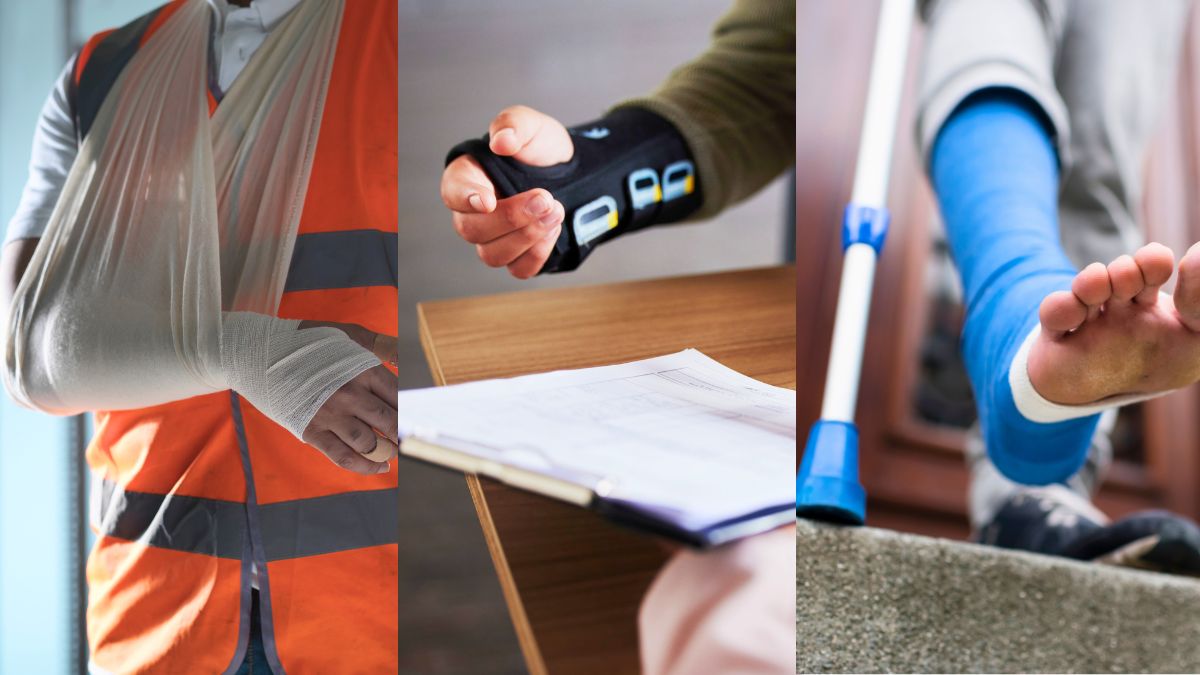

PEDESTRIAN.TV has teamed up with Slater and Gordon to help young people know their rights in the workplace.
No one expects to get injured at work, including those who experience it first-hand. After speaking to one such person, I started to wonder about what I would do in that situation.
I don’t know about you guys, but I would have no idea what my rights were. Actually, I’d probably say, “Sorry, it’s my fault.” Which I’m assuming is like, legal 101 on what NOT to do.
Instead of trying to turn back time, I asked nine questions to Riley, a tradie who got injured at work, on what he wished he knew before the accident.
Could you please describe your injury at work and what circumstances led up to it?
“I was on a worksite doing my job, with another worker, when out of nowhere I felt something hit my head and I realised it was a nail from his nail gun,” Riley explained. “If it was the tiniest bit to the left, right, up or down, it would have killed me on the spot.”
What I take from this is that even if I’m safe at my job, accidents that are out of my control, can and do, still happen. The Australian Bureau of Statistics found that 497,300 people experienced a work-related injury or illness in 2021-2022.
How did your workplace respond to your injury?
Most people hope that their workplace cares and does the right thing, but unfortunately, sometimes that’s not the case.
He went on, “My boss didn’t care about how I was and only cared about the business because he knew it was going to be an issue for his business.”
What happened after the accident?
“Someone I worked with took me to the closest hospital and then I had to be transferred to another hospital by ambulance, where I had a four hour ‘open brain’ surgery. I had to be off work for some time while I recovered and received treatment,” Riley explained. “I still get headaches and sharp pains in my head, and dizziness when I bend over.”
Luckily, in Australia, you could be legally entitled to workers compensation. It varies from state to state, but generally, according to Safe Work Australia, your worker’s compensation should cover some of your wage, medical/hospital costs and even a lump sum payment if you’re seriously injured.
How did you find out if your work was at fault for the injury?
I don’t know about you, but I’d be too shy to tell them they were at fault. Luckily, lawyers are a thing.
“It was at work so I knew they were responsible but I didn’t know how they would be held accountable,” Riley went on.
Adds Ruby Robertson, his lawyer: “If a worker is injured while doing their job, the general entitlements are to lost income, medical expenses and potentially a lump sum for their impairment.”
“But if the employer has failed in some way to prevent a risk of injury to their employee, and that risk is foreseeable, it can be arguable that the employer was negligent in causing that injury and be liable for the consequences that followed,” she went on.
What did you document/what did you wish you documented?
“I went to see doctors regularly and I took photos of my injury while in hospital,” Riley explained.
“Crucial details about how the incident happened should be reported as soon as possible. Over time, the specific details of the cause of the incident can be lost if the worker is relying on their memory,” Robertson explained.
She went on, “Photos of the incident location and any witness statements taken at the time or soon after the incident can be invaluable in a claim if it is argued that the employer was negligent.”
Note to self, document everything you can, got it.
What was your worker’s compensation in your state? How did you claim it?
You wouldn’t talk to a fish about how to skydive, would you? It’s best to talk to an expert in the field on how to maximise what you’re entitled to in your state. Just like Riley did.
“I had no idea, I spoke to Dad and then came to Slater and Gordon,” he went on.
Robertson encourages anybody injured at work, to get legal advice: “It is always a good idea to get legal advice, even at early stages in a claim, to make sure that you are accessing all of your entitlements.”
Did you have trouble getting money from the company?
“I was lucky because the claim was accepted so I didn’t have trouble getting money for time off work,” Riley explained.
Unfortunately, not everyone is lucky, which is why it’s important to know what you’re entitled to so you’re not starring in the movie Clueless. You want to give off Legally Blonde vibes instead.
It’s also good to understand that employers are meant to have insurance for these claims under WorkCover, so there’s no need to worry about sending your employer bust.
Did they ask you to come back before your leave ran out?
“They asked me to come back to work before I was ready and able to work,” Riley explained.
Ah, rude. That doesn’t seem legal? Luckily he got advice from a professional like Robertson, not me who is just obsessed with legal shows.
Would you recommend hiring a lawyer? How did you pick your lawyer?
“Slater and Gordon has a good name so I recommend any young person injured at work get advice from them,” Riley explained.
After asking why, he went on: “I didn’t know about lump sum entitlements which Slater and Gordon advised me of and later helped me claim.”